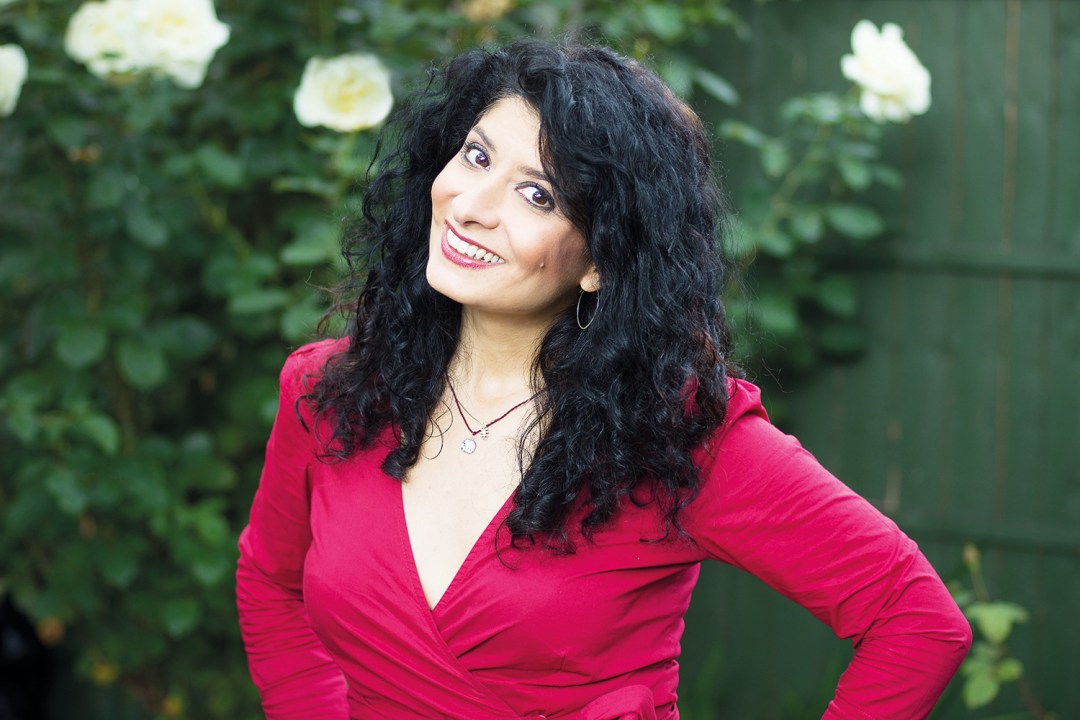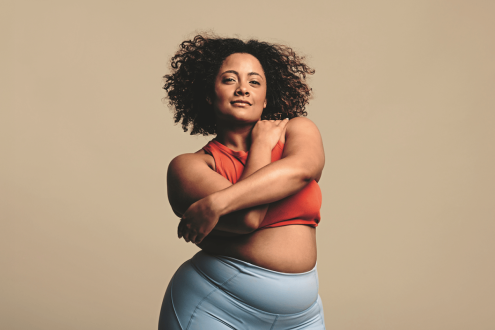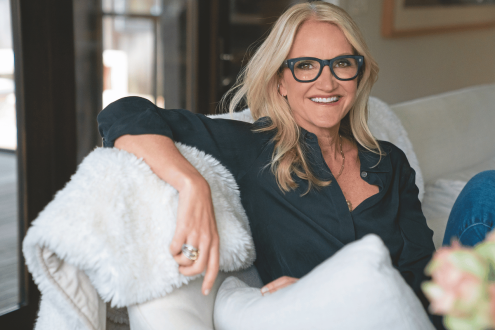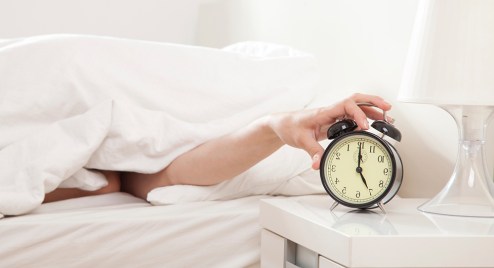Interview: Shappi Khorsandi
The comedian and president of the British Humanist Association has written a novel, Nina Is Not OK, and recently finished a run of her new stand-up show at the Edinburgh Festival... and there’s wisdom in those wisecracks. Interview by Danielle Woodward

My show was inspired by the hashtag #proudtobeenglish – that hashtag is mine!
All my life, I’ve been told I can’t be English as I wasn’t born here. We claim Eddie Izzard and Joanna Lumley, but they weren’t born here. If you say they can be English but not me, that’s racist, as it comes down to skin colour. Your home is where you say it is, just like your gender is what you say it is.
My family fled Iran in the 1970s and, as a child refugee, experiencing hostility from adults was a big deal.
When you’re five and people tell you to ‘go home’, it’s going to create anxiety. Then it becomes a fight back – they don’t get to tell me where I deserve to be or what I’m entitled to.
Compassion matters to me, and understanding each other.
And, sometimes, understanding that you don’t understand; that someone can feel passionately about a view opposing yours and it doesn’t make them a bad person.
Looking out for people who are hurting is one of our family values.
When my marriage broke down, my parents were kind to both myself and my ex. It must have taken extraordinary strength to see what I went through and not make the situation worse with their own opinions.
Being a single mum is a constant juggle but I’m lucky; I love my job and I’m confident asking for help.
When my son was three, I shouted at him and he said: ‘You’re not angry with me; you’re angry with something else, but I’m the only one here.’ I heard my heart crack. You have to accept that when you get divorced when your child is only two, they are going to grow up fast.
CBT helped me at various times in my life.
I realised you can change your thinking about your circumstances and, suddenly, there are options that you didn’t see before.
Atheism is not the same as apathy.
Even if you are ‘none of the above’, it doesn’t mean you don’t scrutinise morals and philosophies as much as anyone else.
Anyone who uses the phrase ‘do-gooder’ as a pejorative term annoys me.
I spent a day at a refugee camp in Calais and people on Twitter called me a do-gooder, but how can that be a bad thing? What are you doing?
If you have low self-esteem, you lose respect for people who are good to you, because you think there must be something wrong with them if they think highly of you.
Then you have relationships with people who don’t value or respect you, because that feeling is familiar. It takes a lot of undoing to say: ‘This person isn’t safe for me; I don’t have to be around them.’ This is Nina’s story [in Nina Is Not OK].
Nina is humiliated on social media.
When I was a teenager, you heard someone had said something horrible about you, and it ruined your week. So, imagine what it feels like to be humiliated online when all you’re doing is growing up. It’s devastating.
Stand-up is a chance to communicate – I’m making up for when I first came to England and didn’t speak the language.
Stand-up is a conversation; when the audience laugh, they are replying to me. I have a need to connect.
You can attribute not getting ahead in life to sexism, but every woman must recognise when her gender is holding her back and stand up for herself.
It’s hard to see, as people you love can be sexist without meaning to be. Raging about not getting this or that because you are a woman is so not funny. It’s just comedy, let’s get on with it.
Nina Is Not OK (Ebury Press, £12.99) is out now. For details about Shappi’s tour, visit shappi.co.uk
Photograph: Pal Hansen for Psychologies









